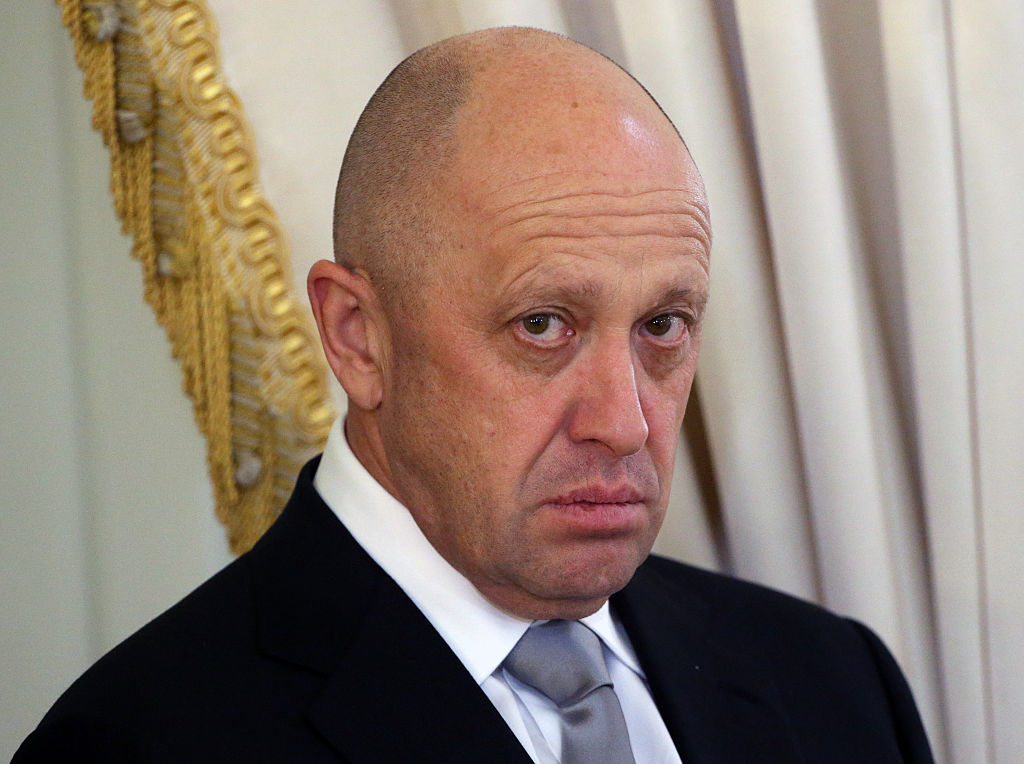The White House on Friday designated Russia’s Wagner Group a “significant transnational criminal organization,” which gives Washington “additional avenues” to crack down on its global network. The label was accompanied by new sanctions to “identify, disrupt, expose, and target” Wagner’s funders and supply lines.
The new restrictions, along with Wagner’s role in Russian President Vladimir Putin’s war against Ukraine, have brought the group unprecedented attention. Yet Wagner—sometimes described as “Putin’s Shadow Army”—has already spent nearly a decade operating around the world.
What is the Wagner Group?
The mercenaries first appeared nine years ago in Ukraine, where they worked alongside conventional Russian forces and proxy militias to capture Crimea and wage war in the Donbas. While Wagner isn’t officially part of the Russian government, the organization carries out campaigns to advance Moscow’s military, economic, and political interests in countries across the globe. Wagner is reported to have close ties to Russia’s GRU military intelligence agency, the defense ministry, and Putin himself.
Maintaining the guise of independence, however unconvincing, allows Wagner’s forces to operate with relative impunity. In the years since its formation, the group has gained worldwide notoriety for allegedly committing war crimes—including looting, rape, torture, and extrajudicial killings—that target combatants and civilians alike. Wagner fighters led the charge in the massacre of Ukrainians in the city of Bucha last year, according to a German intelligence assessment.
Wagner’s public face and financial backer, Russian oligarch Yevgeny Prigozhin, has embraced the group’s reputation for ruthlessness and criminality. In November Prigozhin praised one of his soldiers for murdering a Russian deserter on camera using a sledgehammer. “It seems to me that this film should be called: ‘A dog dies a dog’s death,’” he said. “It was an excellent directional piece of work, watched in one breath. I hope no animals were harmed during filming.”
Where does Wagner operate?
The guns-for-hire have a truly global reach, having operated in some 30 countries on four continents.
They’ve formed a crucial part of Russia’s foothold in Syria, training and fighting alongside Syrian government forces to sustain Bashar al-Assad’s once-crumbling regime. In one striking battle about five years ago, hundreds of Syrian government troops and Wagner mercenaries advanced on an outpost where some 30 U.S. soldiers were stationed. American forces repelled the onslaught, leaving between 200 and 300 of the attackers dead.
The private military company has also helped prop up failing governments in Mali, Venezuela, and the Central African Republic. Capitalizing on political instability enables Wagner to further commercialize its ventures by seizing control of oil fields and mines in the countries where it operates.
What has the group been up to in Ukraine?
Russia’s full-scale invasion of Ukraine seemingly thrust Wagner into a position of growing influence. Within days of Russia’s initial onslaught, reporting emerged of the group’s failed assassination attempt on Ukrainian President Volodymyr Zelensky. Nearly a year later, Prigozhin and his allies in Moscow have leveraged Wagner’s battlefield experience to present themselves as the alternative to the floundering military establishment.
After the mobilization of 300,000 reservists failed to produce significant Russian victories, Putin in October appointed Prigozhin-ally Army General Sergey Surovikin to lead the war effort in Ukraine. Surovikin—who commanded Russian forces during the bombing of Aleppo, Syria—undertook an air campaign to wipe out Ukraine’s energy grid, while Wagner began launching human wave attacks in the eastern region of Donetsk.
“In certain instances, Russian military officials are actually subordinate to Wagner’s command,” John Kirby, a White House National Security Council coordinator, said last month. “It’s pretty apparent to us that Wagner is emerging as a rival power center to the Russian military and other Russian ministries.”
Yet Wagner’s campaign in eastern Ukraine relies on finite manpower. To remedy this problem, Prigozhin recruited tens of thousands of troops from Russian prisons. But of the some 50,000 Russian convicts it sent to the front, only about 10,000 remain, human rights organization Russia Behind Bars said Monday. The vast majority apparently surrendered, deserted, or were wounded or killed. As the battle for the Donetsk city of Bakhmut rages, Wagner-led forces have made some progress, Kirby said, but at “an extraordinary cost.” Prigozhin is “just literally throwing bodies into a meat grinder.”
Have the setbacks affected Wagner’s sway in Moscow?
Though it’s difficult to discern the internal politics of Putin’s regime, some believe Prigozhin’s military strategy may not be paying off back in Russia.
Wagner’s failure to quickly capture Bakhmut has led to Prigozhin’s sidelining in Moscow as the defense ministry reasserts itself, a report by the Institute for the Study of War concluded Sunday. This month Putin tapped Valery Gerasimov, the chief of the general staff, to replace Surovikin as the head commander in Ukraine. The choice points to the ascendance of Russia’s conventional military as its forces regroup in reported preparation for another offensive in the spring or summer.
While the marginalization of Prigozhin may appear encouraging, the military establishment remains a formidable opponent for Ukraine.
“Prigozhin could never have established a formidable and sustainable national military apparatus. As long as Putin favored Prigozhin’s and others’ irregular approaches to continuing the war Putin postponed the day that Russian could re-establish a powerful conventional military,” the Institute for the Study of War report notes. “NATO would do well to take note of this development as a matter of its own future security, beyond anything it might portend for Ukraine.”






Please note that we at The Dispatch hold ourselves, our work, and our commenters to a higher standard than other places on the internet. We welcome comments that foster genuine debate or discussion—including comments critical of us or our work—but responses that include ad hominem attacks on fellow Dispatch members or are intended to stoke fear and anger may be moderated.
With your membership, you only have the ability to comment on The Morning Dispatch articles. Consider upgrading to join the conversation everywhere.